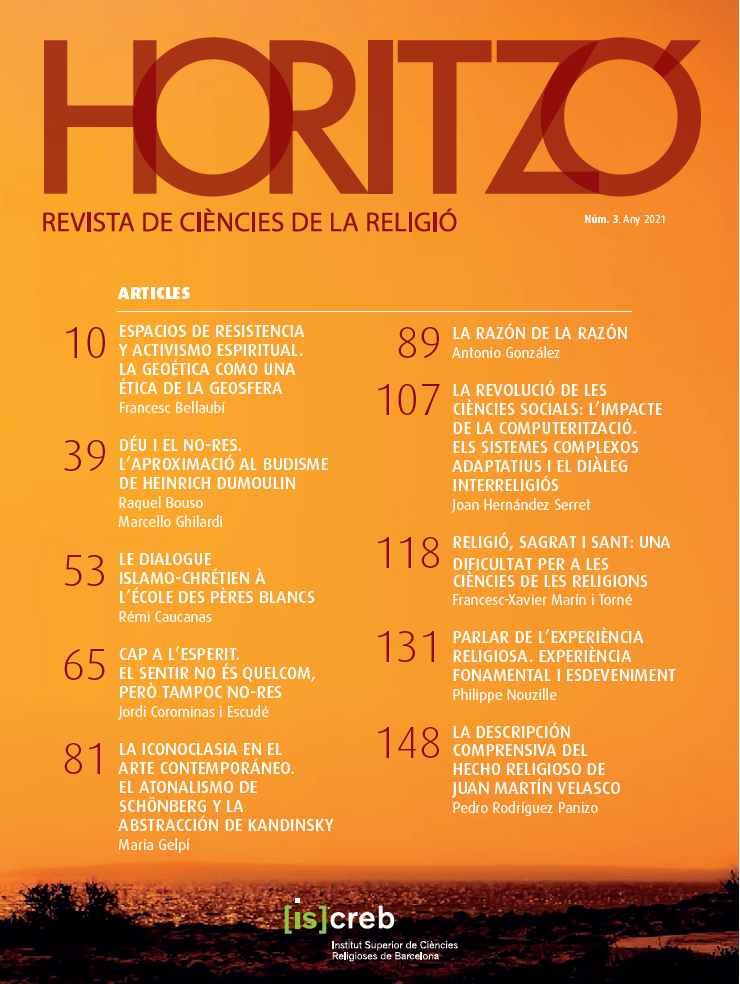Déu i el no-res. L'aproximació al budisme de Heinrich Dumoulin.
God and the nothingness. Heinrich Dumoulin's Approach to Buddhism.
Abstract
This article examines the role in the reception of Zen Buddhism in the West played by the German Jesuit Father Heinrich Dumoulin (1905-1995). Thanks to his exceptional historical and philological knowledge, his writings offer a reconstruction of the historical roots and development of Zen in China, Korea and Japan, as well as the translation and interpretation of some key texts of Japanese Buddhism. Dumoulin also became interested in Japanese poetry and the Shinto tradition, as shown by his studies of Kamo no Mabuchi (1697-1769). However, it is in the dialogue that he establishes, from deep Catholic convictions, with contemporary
Japanese philosophers and spiritual masters that we can best assess the significance of his encounter with Buddhism for the configuration of current philosophy and theology. In this sense, the traditional Christian understanding of ultimate reality as a personal being in the face of the Buddhist absolute nothingness occupies a prominent place in Dumoulin’s reflections.

Downloads
Published
How to Cite
Issue
Section
License

This work is licensed under a Creative Commons Attribution-NonCommercial-NoDerivatives 4.0 International License.
https://creativecommons.org/licenses/by-nc-nd/3.0/es/deed.en

